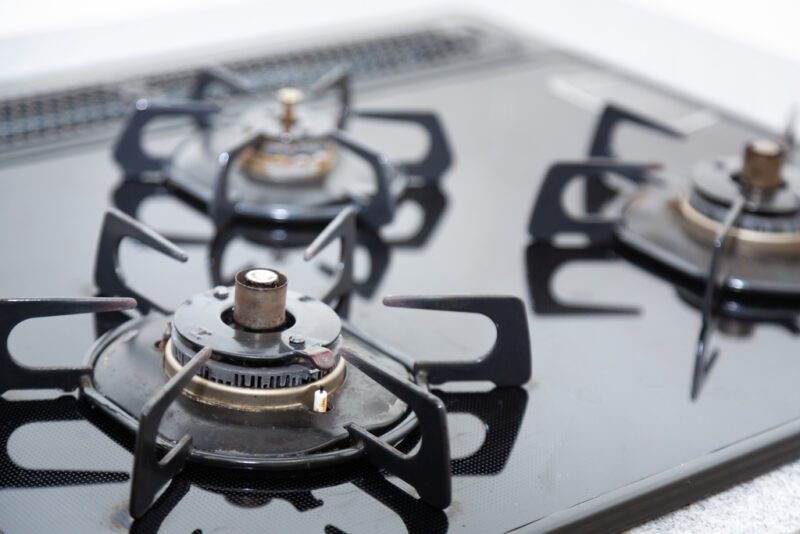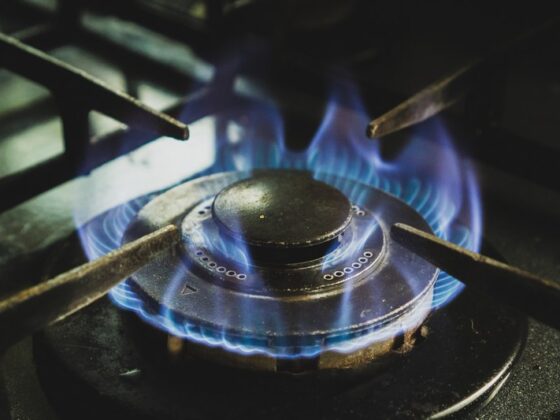Gas stoves are a staple in many kitchens for their quick and efficient cooking abilities. However, it’s important to prioritize safety when using a gas stove to prevent accidents and ensure a worry-free cooking experience. In this blog post, we’ll share some essential safety tips to keep in mind when using a gas stove.

1. Keep Your Stove Clean
Regularly cleaning your gas stove not only helps maintain its performance but also reduces the risk of fire hazards. Grease and food particles can accumulate over time, increasing the chances of a fire. So, make it a habit to clean your stove regularly with mild soap and water, avoiding abrasive cleaners that may damage the surface.
2. Check for Gas Leaks
Before using your gas stove, it’s crucial to check for any gas leaks. A simple way to do this is by applying a mixture of soap and water to the gas connections. If you notice any bubbles forming, it indicates a leak. In such cases, turn off the gas supply immediately, open windows for ventilation, and contact a professional for assistance.
3. Keep Flammable Objects Away
One of the most important safety precautions is to keep flammable objects away from your gas stove. This includes items such as kitchen towels, paper, plastic, and curtains. These materials can easily catch fire if they come into contact with a hot burner. Always maintain a safe distance of at least three feet between your stove and any flammable objects.
4. Use Proper Cookware
Using the right cookware is essential for safe cooking on a gas stove. Opt for pots and pans with flat bottoms and tight-fitting lids to ensure even heat distribution and prevent any accidents. Additionally, avoid using oversized cookware that extends beyond the burner as it can increase the risk of spills and burns.
5. Never Leave the Stove Unattended
It’s easy to get distracted while cooking, but it’s crucial to never leave your gas stove unattended. Accidents can happen in the blink of an eye, and a small flame can quickly turn into a dangerous fire. If you need to step away from the stove, even for a short while, turn off the burner to minimize the risk of accidents.
6. Use Ventilation
Proper ventilation is vital when using a gas stove. Gas stoves produce carbon monoxide, a colorless and odorless gas that can be harmful if inhaled in large quantities. Ensure your kitchen has adequate ventilation, such as an exhaust fan or open windows, to allow fresh air to circulate and prevent the buildup of carbon monoxide.
7. Install a Carbon Monoxide Detector
For an added layer of safety, consider installing a carbon monoxide detector near your gas stove. This device can detect any buildup of carbon monoxide in the air and alert you before it reaches dangerous levels. Regularly check and replace the batteries to ensure the detector is functioning properly.
8. Know How to Shut Off the Gas
In case of an emergency, it’s crucial to know how to shut off the gas supply to your stove. Locate the gas shut-off valve near your stove and familiarize yourself with its operation. If you smell gas or suspect a leak, turn off the gas supply immediately, open windows, and evacuate the area. Contact your gas provider or emergency services for assistance.
Conclusion
By following these safety tips, you can enjoy the convenience of cooking on a gas stove while minimizing the risk of accidents. Remember to keep your stove clean, check for gas leaks, keep flammable objects away, use proper cookware, never leave the stove unattended, ensure proper ventilation, install a carbon monoxide detector, and know how to shut off the gas. With these precautions in place, you can cook with confidence and peace of mind.
Frequently Asked Questions
The main hazards include gas leaks, carbon monoxide poisoning, fire hazards, burns, explosions, chemical exposure, and tip-over hazards.
Regularly check the gas line for leaks, ensure proper installation, and maintain the stove according to the manufacturer’s guidelines.
If you suspect a CO leak, immediately turn off the stove, ventilate the area, and call for professional help. It’s also recommended to install a carbon monoxide detector near the stove.
Clean your stove regularly to prevent grease accumulation, check for clogged burner holes, and ensure all burners are turned off when not in use.
Use cookware that is stable and appropriate for the size of the burner to prevent tipping over. Avoid using oversized pots or pans that can cause uneven heating and pose a safety risk.











